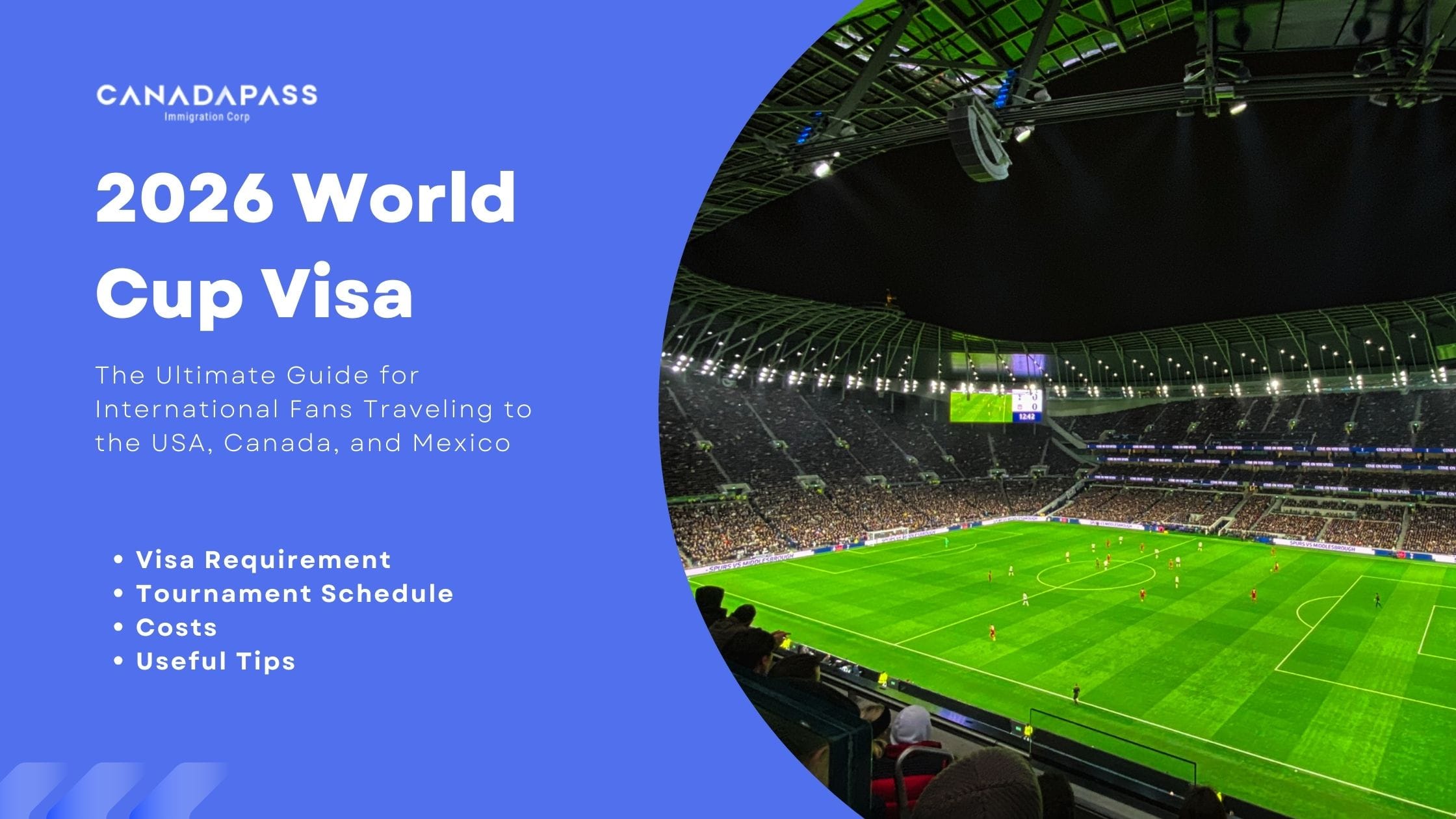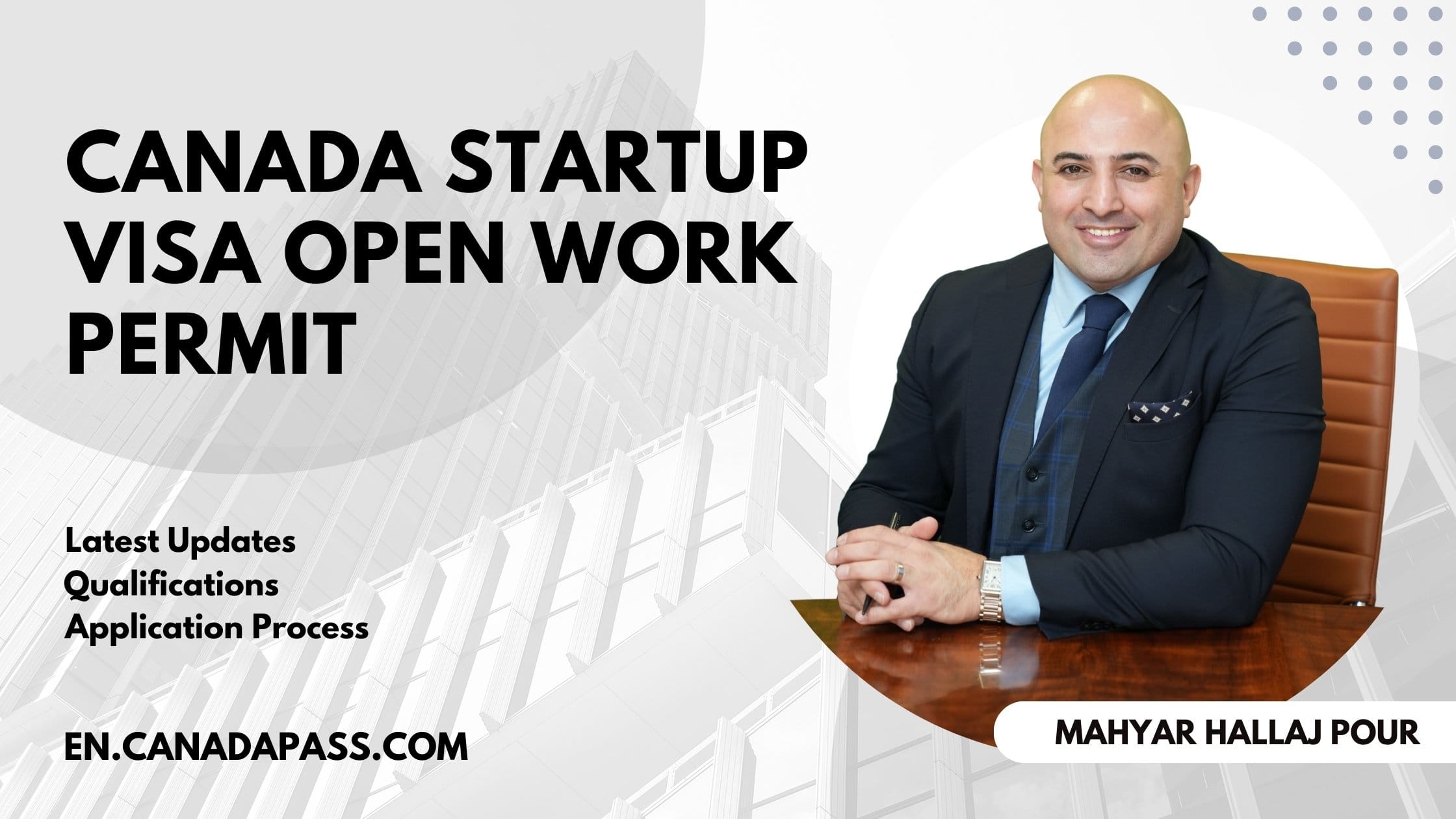The Atlantic Immigration Program (AIP) provides a pathway to permanent residence in Canada for skilled workers and international graduates who wish to live and work in one of the four Atlantic provinces: New Brunswick, Nova Scotia, Prince Edward Island, and Newfoundland and Labrador.
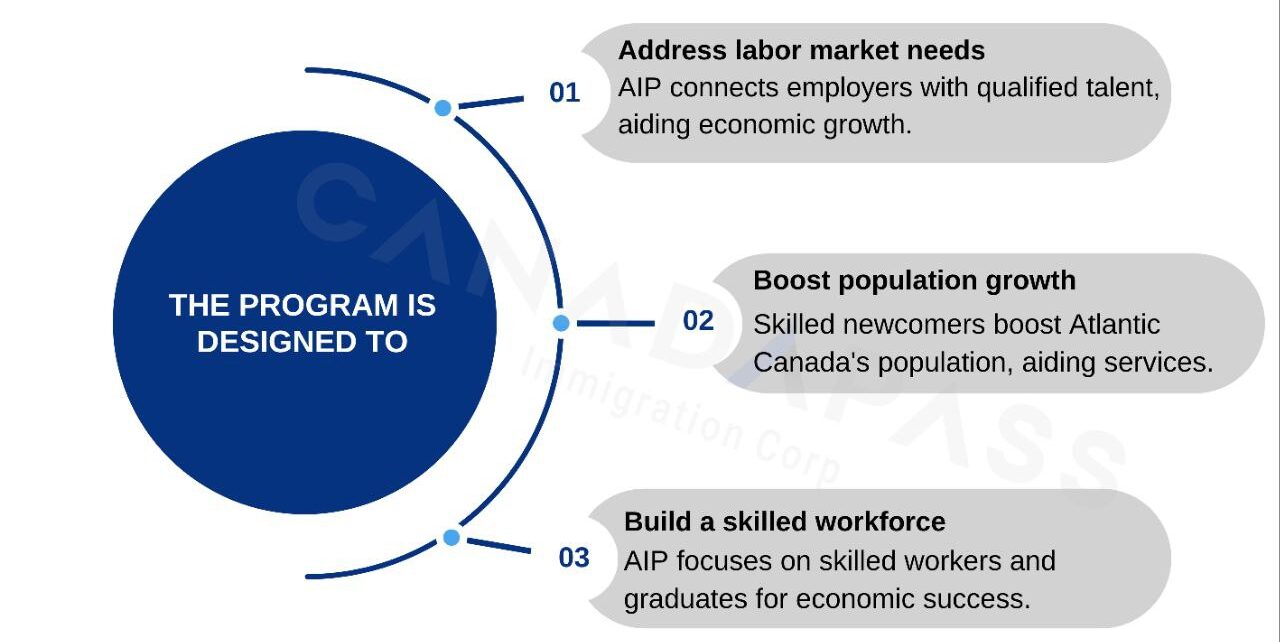
The program is designed to:
- Address labor market needs: By connecting employers with qualified talent they cannot find locally, the AIP helps businesses thrive and contributes to economic growth in the region.
- Boost population growth: Attracting and retaining skilled newcomers helps increase the population in Atlantic Canada, supporting essential services and community development.
- Build a skilled workforce: The AIP prioritizes skilled workers and international graduates, enhancing the region’s talent pool and fostering long-term economic success.
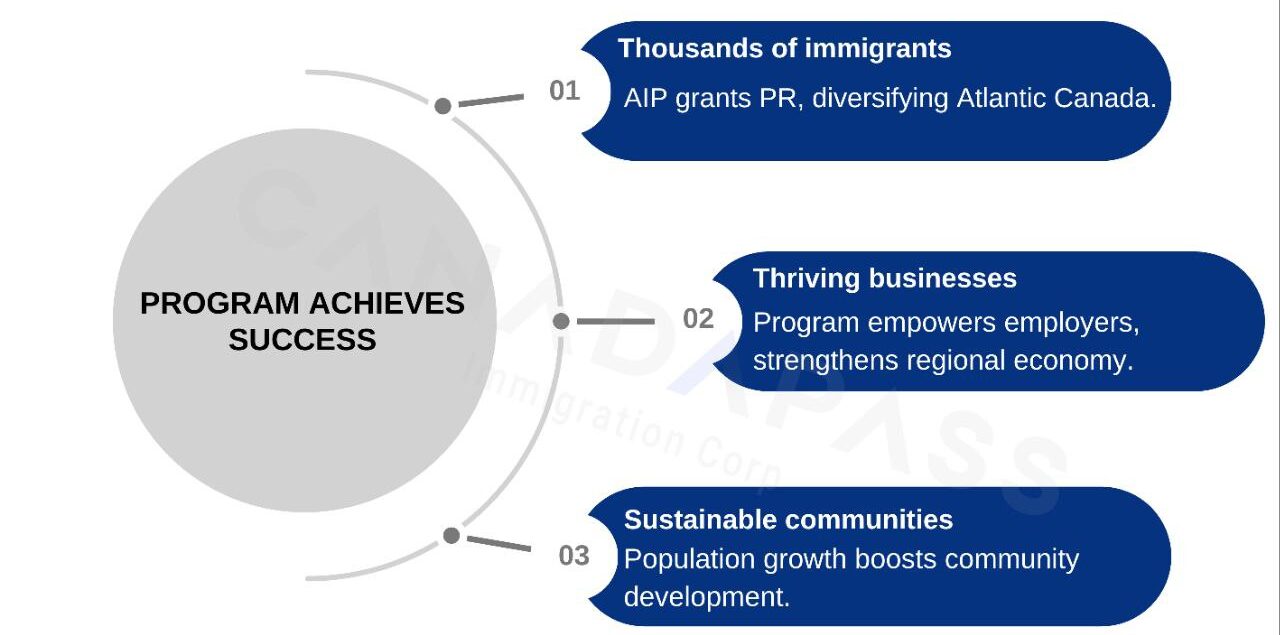
The program has achieved significant success:
- Thousands of immigrants: Each year, the AIP grants permanent residency to numerous skilled workers and graduates, contributing to a more diverse and vibrant Atlantic Canada.
- Thriving businesses: By facilitating access to skilled talent, the program empowers employers to grow and create jobs, strengthening the regional economy.
- Sustainable communities: Increased population and economic activity contribute to the development of strong, sustainable communities across Atlantic Canada.
If you are a skilled worker or international graduate interested in living and working in Atlantic Canada, the AIP offers a valuable opportunity to pursue your career goals and contribute to a thriving region.
Atlantic Immigration Program: How it Works
The Atlantic Immigration Program (AIP) is an employer-led initiative designed to connect qualified foreign workers with job opportunities in Canada’s Atlantic provinces (New Brunswick, Nova Scotia, Prince Edward Island, and Newfoundland and Labrador).
Eligibility:
- Principal Applicants: Must have a valid job offer from a designated AIP employer and an approved settlement plan for themselves and any accompanying family members.
- Designated Employers: Must meet specific program requirements and demonstrate a commitment to supporting the newcomer’s integration into Atlantic Canada.
Key Steps:
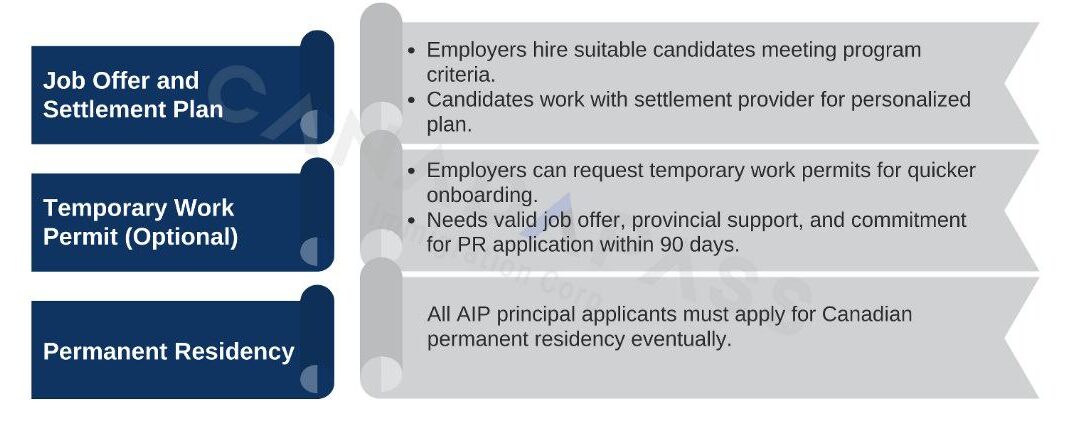
- Job Offer and Settlement Plan:
- Employers identify and hire suitable candidates who meet program criteria.
- Candidates collaborate with a designated settlement service provider to develop a personalized settlement plan.
- Temporary Work Permit (Optional):
- Employers seeking faster onboarding can apply for a temporary work permit for the candidate and family.
- Requires a valid job offer, provincial support letter, and commitment to apply for permanent residency within 90 days.
- Permanent Residency:
- All principal applicants under the AIP must eventually apply for permanent residency within Canada.
Employer Designation:
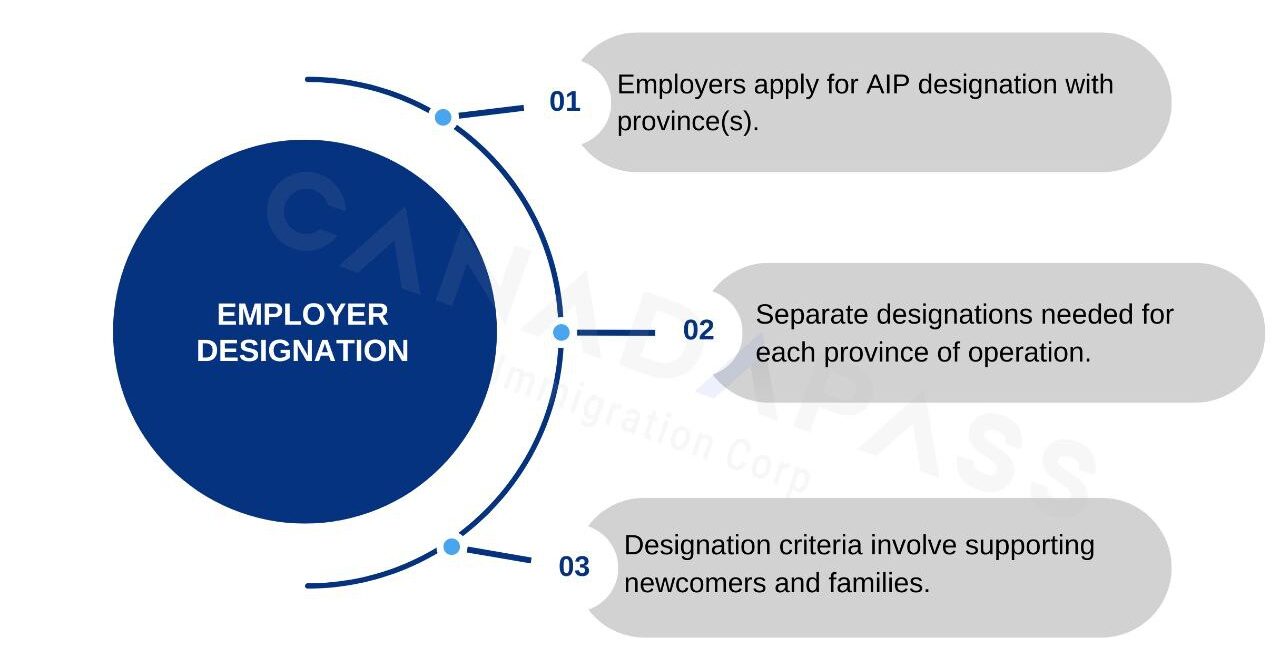
- Employers wishing to participate in the AIP must apply for designation with the relevant province(s).
- Separate designations are required for each province where the employer has operations.
- Designation criteria include demonstrated commitment to supporting newcomers and their families.
Benefits:
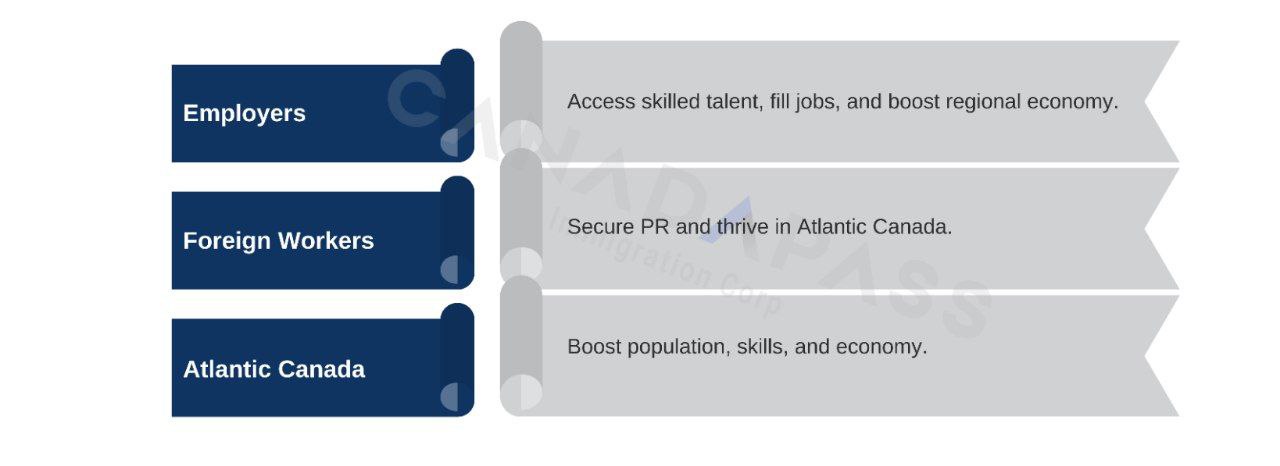
- Employers: Access qualified talent, fill job vacancies, and contribute to regional economic growth.
- Foreign Workers: Secure permanent residency pathway and build successful careers in Atlantic Canada.
- Atlantic Canada: Increase population, skilled workforce, and economic activity.
Candidate Requirements for the Atlantic Immigration Program
To be eligible for the Atlantic Immigration Program (AIP), you must meet the following criteria:
Work Experience:
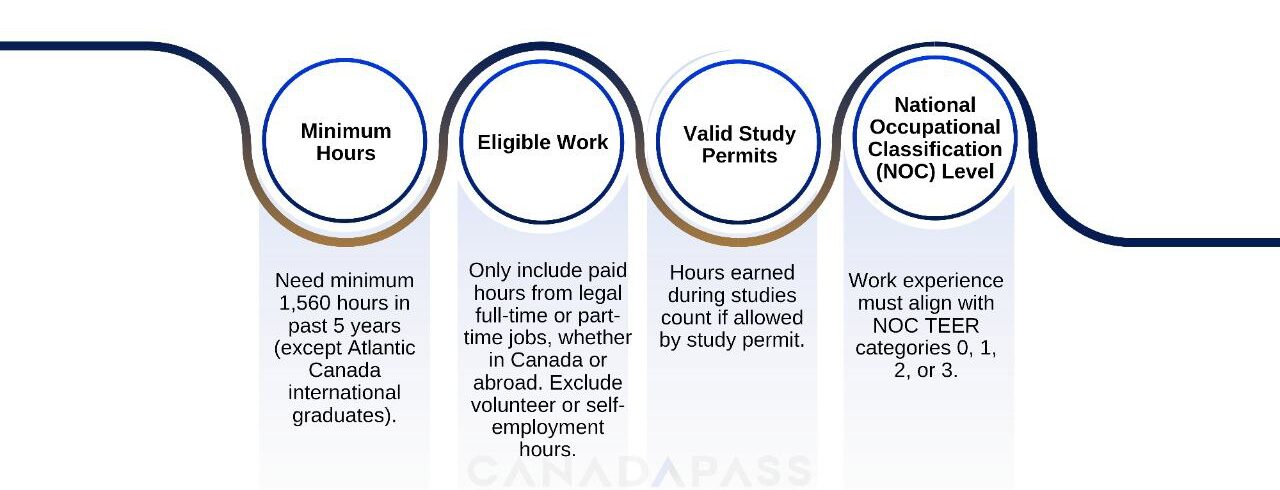
- Minimum Hours: Have worked at least 1,560 hours in the past 5 years (except for international graduates from Atlantic Canada).
- Eligible Work: Count paid hours only, in full-time or part-time jobs, within Canada or abroad (provided you were legally authorized to work). Volunteer or self-employed hours are not counted.
- Valid Study Permits: Hours earned while studying count if permitted by your study permit conditions.
- National Occupational Classification (NOC) Level: Work experience must fall under NOC TEER categories 0, 1, 2, or 3 and match the main duties and actions described in your NOC.
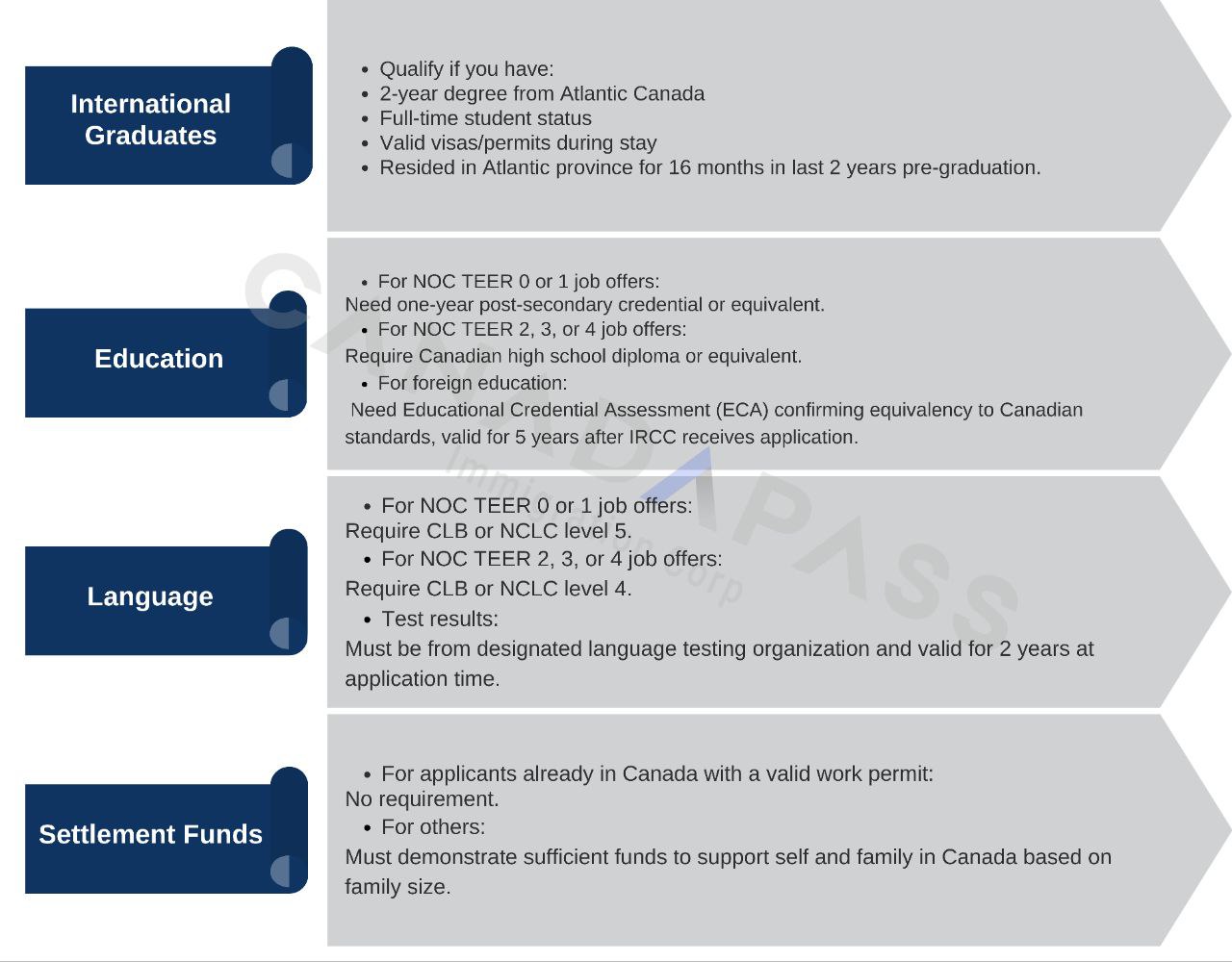
International Graduates:
- Exempt from work experience if:
- You have a two-year degree or equivalent from a recognized post-secondary institution in Atlantic Canada.
- You were a full-time student.
- You had valid visas/permits for work, study, or training throughout your stay in Canada.
- You lived in an Atlantic province for at least 16 months within the last 2 years before graduation.
Education:
- NOC TEER 0 or 1 job offers: Require a one-year post-secondary credential or equivalent.
- NOC TEER 2, 3, or 4 job offers: Require a Canadian high school diploma or equivalent.
- Foreign education: Requires an Educational Credential Assessment (ECA) confirming equivalency to Canadian standards, valid for 5 years after IRCC receives your application.
Language:
- NOC TEER 0 or 1 job offers: Require Canadian Language Benchmark (CLB) or Niveaux de compétence linguistique canadiens (NCLC) level 5.
- NOC TEER 2, 3, or 4 job offers: Require CLB or NCLC level
- Test results: Must be from a designated language testing organization and valid for 2 years at application time.
Settlement Funds:
- Not required for: Applicants already living and working legally in Canada with a valid work permit.
- For others: Show sufficient funds to support yourself and your family in Canada based on family size (see table below).
Family Size (including anyone supported by the applicant, even if not immigrating):
| Family Members | Required Funds |
|---|---|
| 1 | $3,303 |
| 2 | $4,112 |
| 3 | $5,055 |
| 4 | $6,138 |
| 5 | $6,962 |
| 6 | $7,852 |
| 7 or more | $8,742 |
| Each additional member | $890 |
Options for Immigrating to Atlantic Canada:
Beyond the Atlantic Immigration Program (AIP),
several additional pathways exist for immigrating to Canada’s Atlantic
provinces: New Brunswick, Nova Scotia, Prince Edward Island, and Newfoundland
and Labrador. These pathways allow skilled workers, international graduates,
and entrepreneurs to pursue permanent residency based on their qualifications
and contributions to the region.
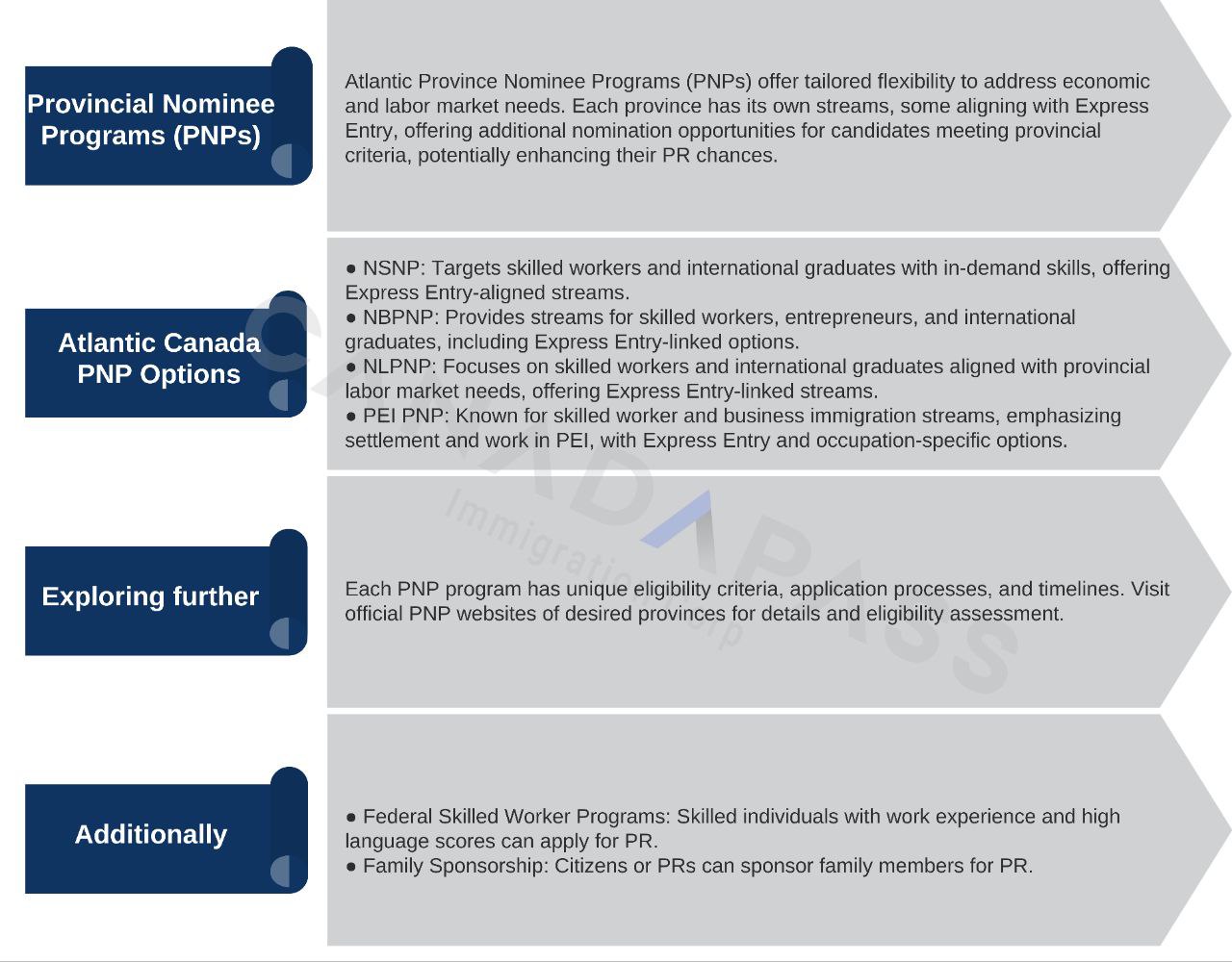
Provincial Nominee Programs (PNPs)
These programs, administered by each individual
province, provide flexibility tailored to their specific economic and labor
market needs. Each Atlantic province offers its own PNP streams, some of which
align with the federal Express Entry system. This allows Express Entry
candidates who meet additional provincial criteria to submit a nomination,
potentially increasing their chances of receiving an invitation to apply for
permanent residency.
Atlantic Canada PNP Options:
● Nova Scotia Nominee Program (NSNP): Focuses on skilled workers and international graduates with in-demand skills and experience. Offers various streams aligned with Express Entry and targeted occupations.
● New Brunswick Provincial Nominee Program (NBPNP): Employs multiple streams for skilled workers, entrepreneurs, and international graduates. Offers Express Entry-linked streams and streams for specific occupations or employers.
● Newfoundland And Labrador Provincial Nominee Program (NLPNP): Targets skilled workers and international graduates with skills aligned with provincial labor market needs.
Provides Express Entry-linked and occupation-specific streams.
● Prince Edward Island Provincial Nominee Program (PEI PNP): Renowned for its skilled worker and business immigration streams. Features Express Entry and occupation-specific options, with a strong focus on attracting newcomers to settle and work in PEI.
Exploring further:
Each PNP program has its own eligibility requirements, application procedures, and processing times. We recommend you visit the official PNP websites of the specific provinces you are interested in to explore available options and find out if you qualify.
Additionally:
● Federal Skilled Worker Programs: Individuals with skilled work experience and high language scores can pursue permanent residency through federal programs like the Federal Skilled
Workers Program.
● Family Sponsorship:
Canadian citizens or permanent residents can sponsor their family members for
permanent residency.
Atlantic Canada welcomes newcomers from all over the world. By exploring the various immigration options available, you can find the pathway that best suits your skills, experience, and goals for building a new life in this vibrant region.
To apply for the AIP, you must first find a job offer from a designated employer in Atlantic Canada. Once you have a job offer, you can start the application process, which includes submitting your application to Immigration, Refugees and Citizenship Canada (IRCC).
Here are some additional frequently asked questions about the AIP:
- Do I need a visa to apply for the AIP?
- What are the settlement funds requirements?
- What is the process for getting a job offer from a designated employer?
- What are the different streams of the AIP?
For more information about the AIP, please visit the official IRCC website or contact the immigration authorities of the relevant Atlantic province.
I hope this FAQ has been helpful! Please let me know if you have any other questions.
Additional Resources:
- IRCC website: https://www.canada.ca/en/services/immigration-citizenship.html
- AIP website: https://www.canada.ca/en/immigration-refugees-citizenship/services/immigrate-canada/atlantic-immigration.html
- New Brunswick PNP website: https://www.welcomenb.ca/content/wel-bien/en/immigrating/content/HowToImmigrate/NBProvincialNomineeProgram.html
- Nova Scotia PNP website: https://novascotiaimmigration.com/
- Prince Edward Island PNP website: https://www.princeedwardisland.ca/en/topic/office-immigration
- Newfoundland and Labrador PNP website: https://www.gov.nl.ca/immigration/
There are many benefits to immigrating to Canada through the AIP, including:
- Fast processing times: Applications for permanent residency under the AIP are typically processed faster than other immigration programs.
- No requirement for a Labour Market Impact Assessment (LMIA): Employers participating in the AIP do not need to obtain an LMIA before hiring foreign workers.
- Pathway to permanent residency: The AIP is a pathway to permanent residency in Canada.
To be eligible for the AIP, you must meet the following criteria:
- Have a valid job offer from a designated employer in Atlantic Canada.
- Meet the education and language requirements for your job offer.
- Have sufficient settlement funds to support yourself and your family in Canada.
- Pass a medical examination.
The Atlantic Immigration Program (AIP) is a Canadian immigration program designed to welcome skilled workers and international graduates to the four Atlantic provinces: New Brunswick, Nova Scotia, Prince Edward Island, and Newfoundland and Labrador. The program aims to address labor market needs in the region and contribute to its economic growth.








